Category: Learn/Brainstorm/Try
-

Day 161: June 9, 2024
Goal: Brainstorm options for measuring and marking time Note: Consider how your speakers divide time on a regular basis. Tip: Think about concepts like day, week, month, season, and year. Work focus: Learn/Brainstorm/Try Brainstorming options for measuring and marking time goes beyond having temporal adverbs like “now” and “then” in your language and asks how…
-
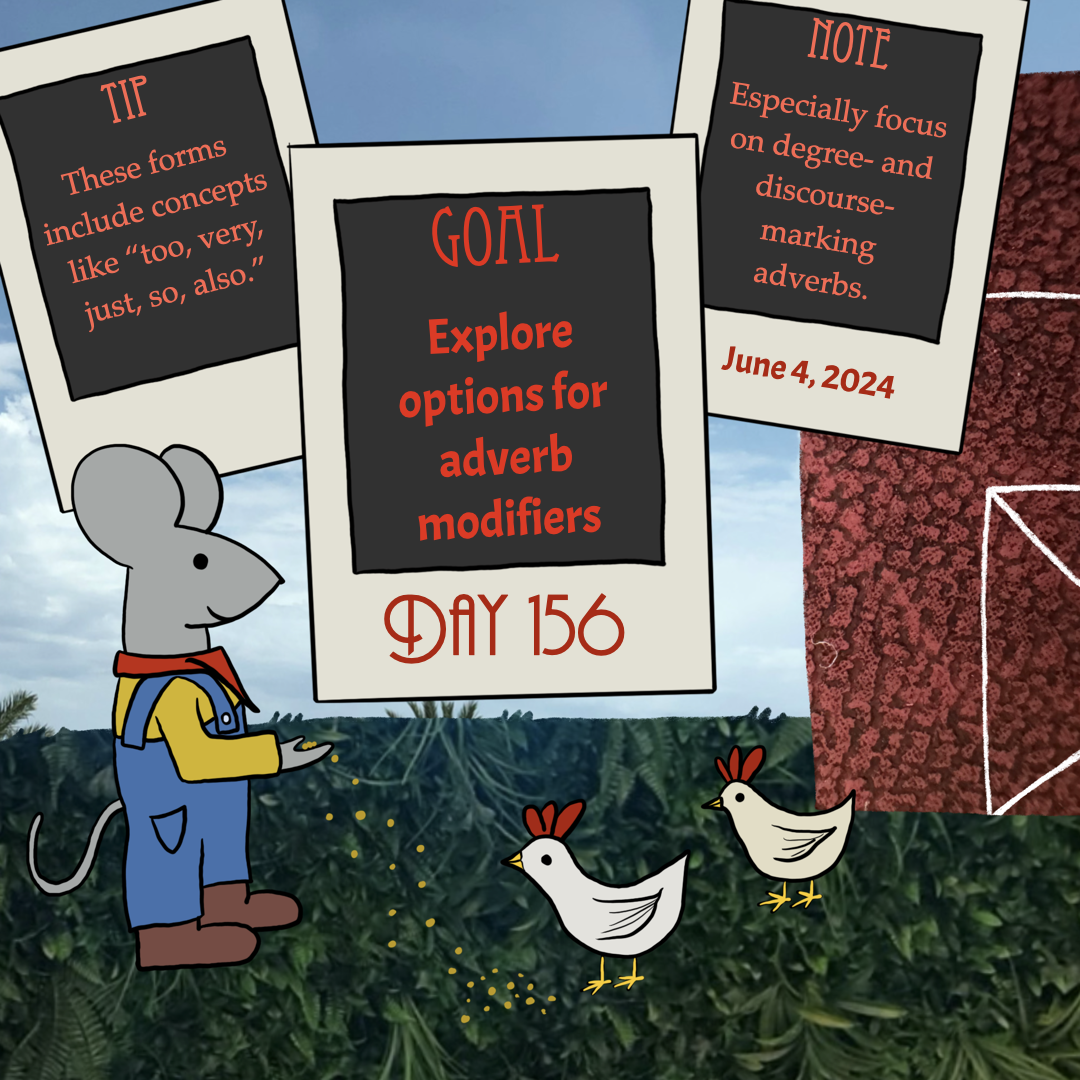
Day 156: June 4, 2024
Goal: Explore options for adverb modifiers Note: Especially focus on degree- and discourse-marking adverbs. Tip: These forms include concepts like “too, very, just, so, also.” Work focus: Learn/Brainstorm/Try Today’s goal extends the focus on creating adverbs in your conlang. Explore options for adverb modifiers, some of which may be basic forms. Specifically, focus on the…
-
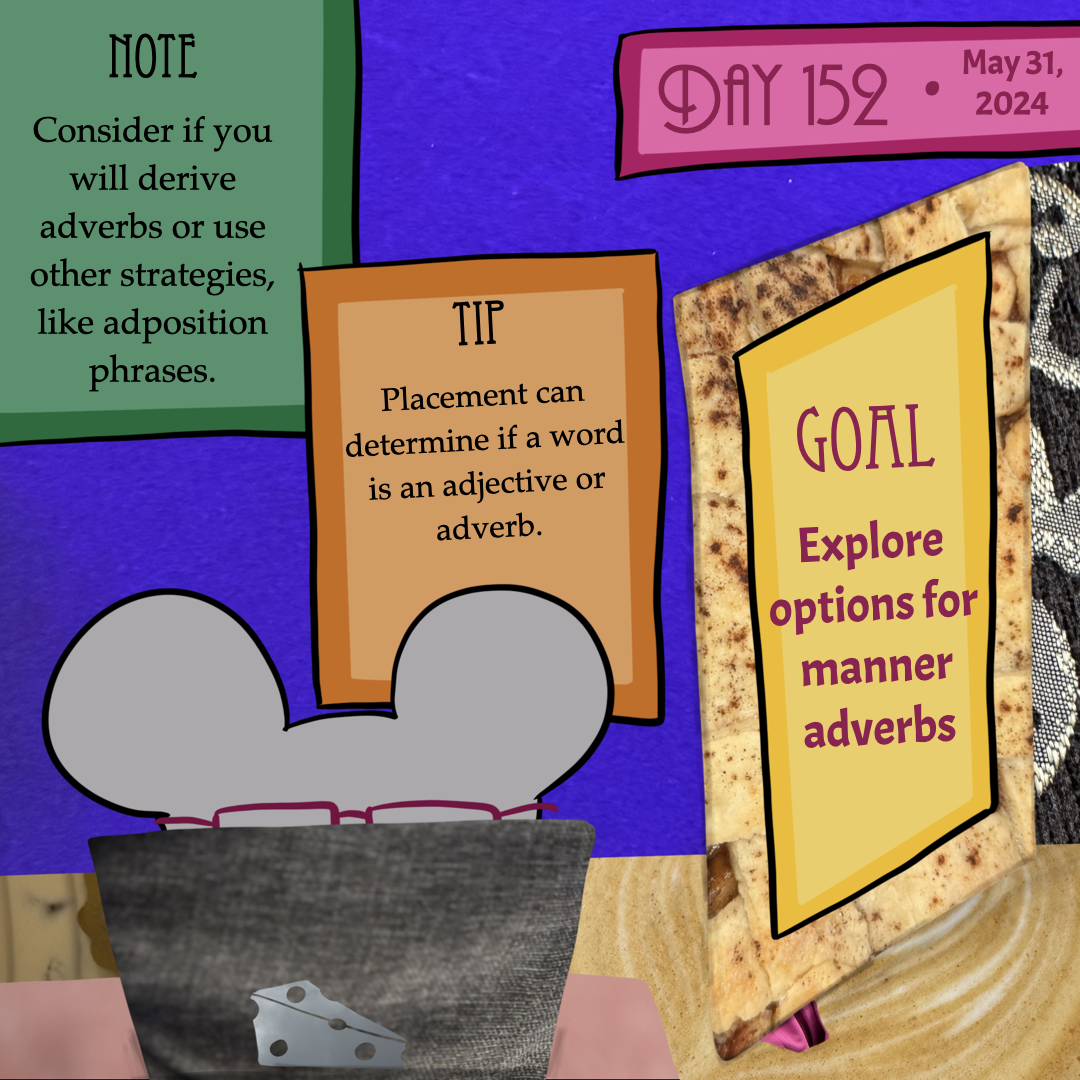
Day 152: May 31, 2024
Goal: Explore options for manner adverbs Note: Consider if you will derive adverbs or use other strategies, like adposition phrases. Tip: Placement may determine if a word is an adjective or adverb. Work focus: Learn/Brainstorm/Try Many manner adverbs are not basic roots. They are often compounded or derived forms, or they may even be best…
-
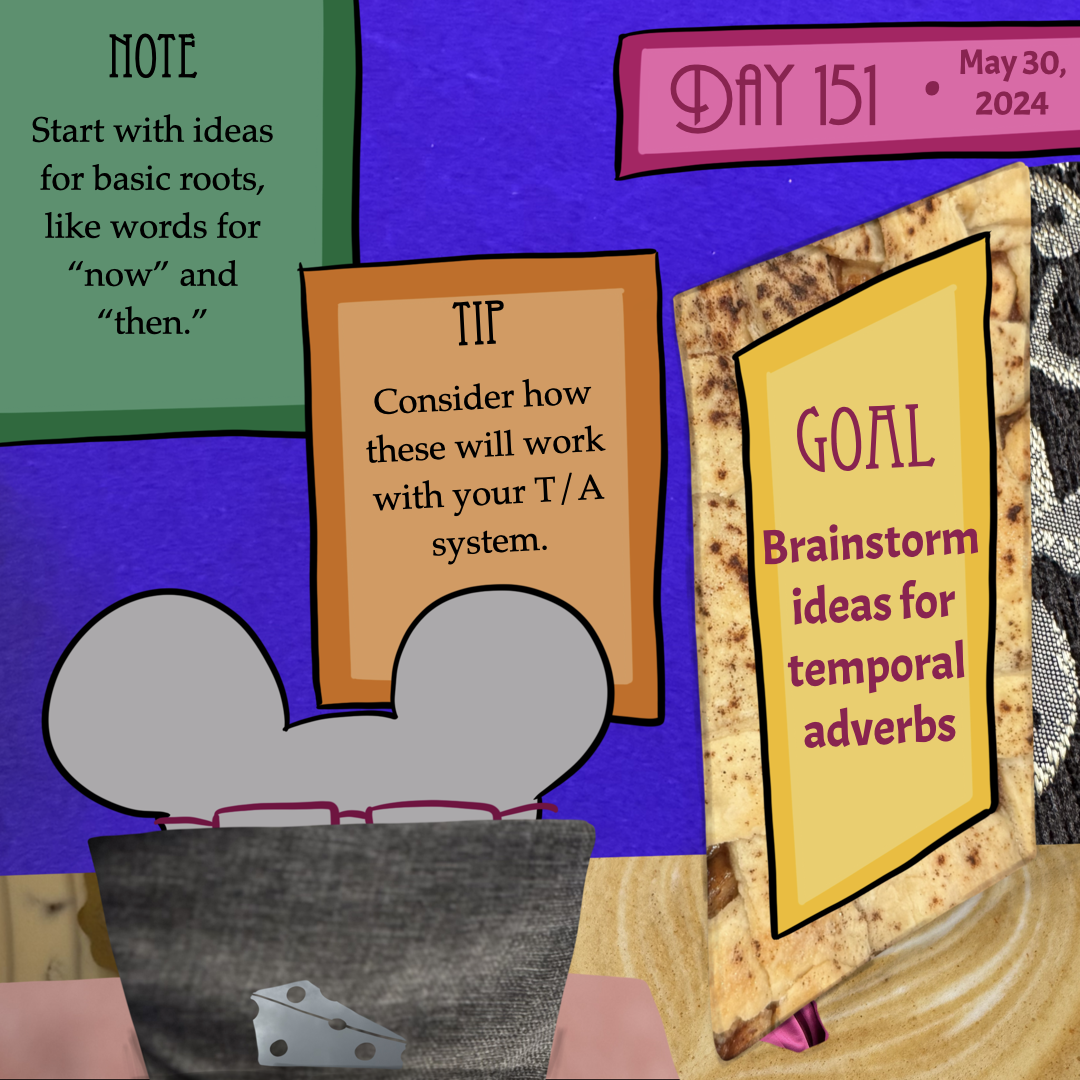
Day 151: May 30, 2024
Goal: Brainstorm ideas for temporal adverbs Note: Start with ideas for basic roots, like words for “now” and “then.” Tip: Consider how these will work with your T/A system. Work focus: Learn/Brainstorm/Try Continue your adverbial brainstorming by turning your attention to temporal adverbs, starting with ideas for basic roots. Common basic temporal adverbs include “now”…
-
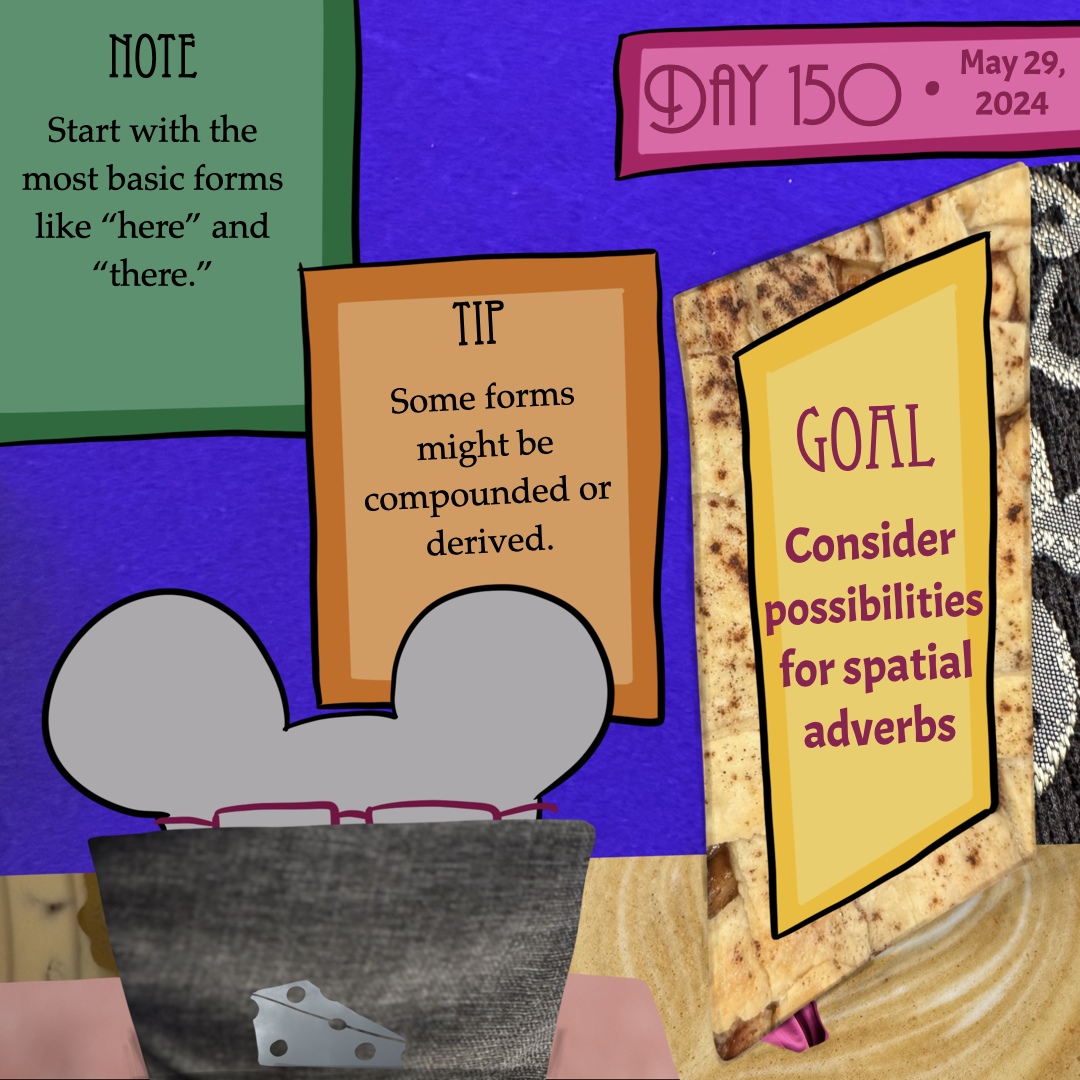
Day 150: May 29, 2024
Goal: Consider possibilities for spatial adverbs Note: Start with the most basic forms like “here” and “there.” Tip: Some forms might be compounded or derived. Work focus: Learn/Brainstorm/Try Today the focus shifts to adverbs! Consider possibilities for spatial adverbs in your language, starting with basic forms like “here” and “there.” Some adverbs might be compounded…
-
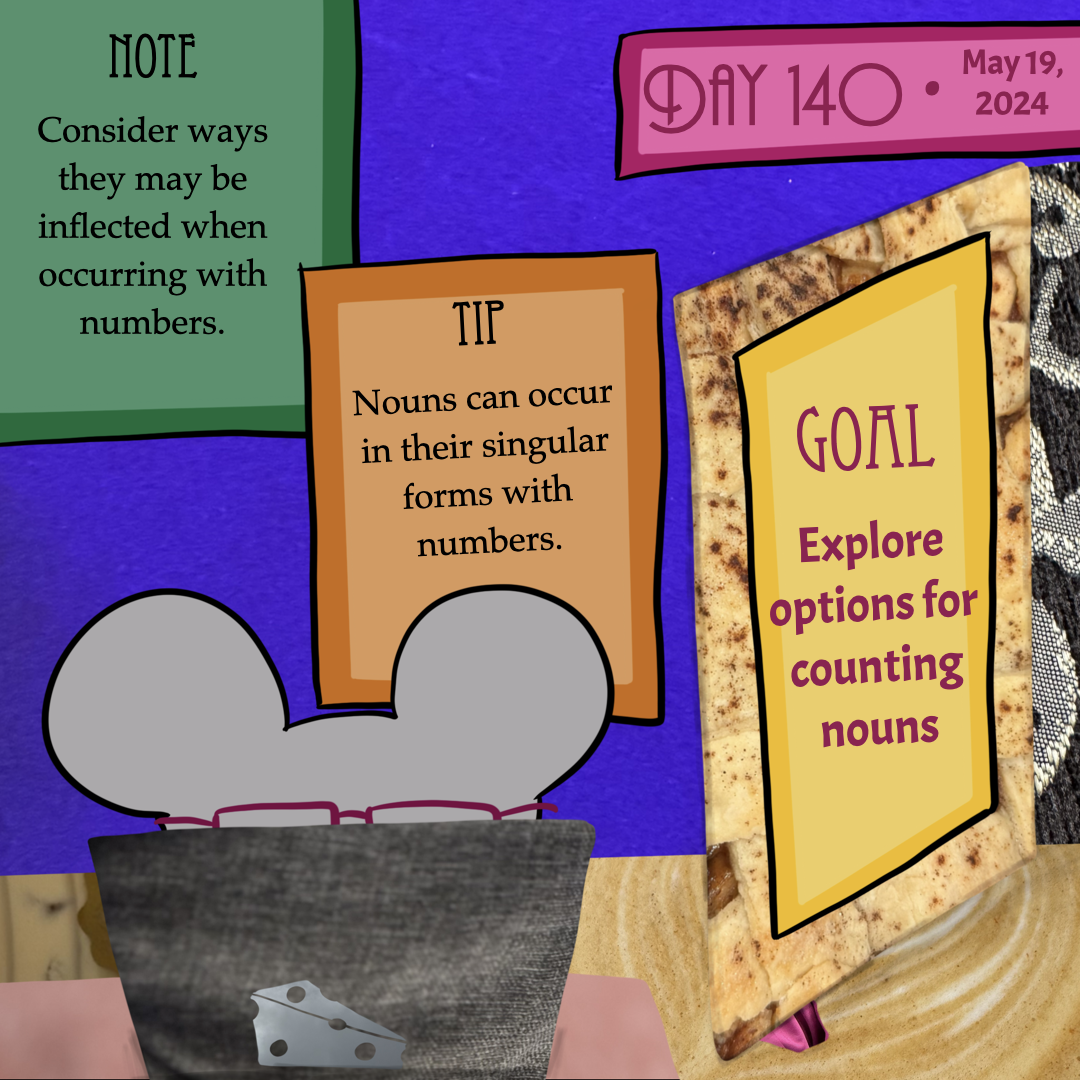
Day 140: May 19, 2024
Goal: Explore options for counting nouns Note: Consider ways they may be inflected when occurring with numbers. Tip: Nouns can occur in their singular forms with numbers. Work focus: Learn/Brainstorm/Try Numbers can work differently from other words in language—so much so that they are not easily categorizable as one lexical category or another. In some…
-
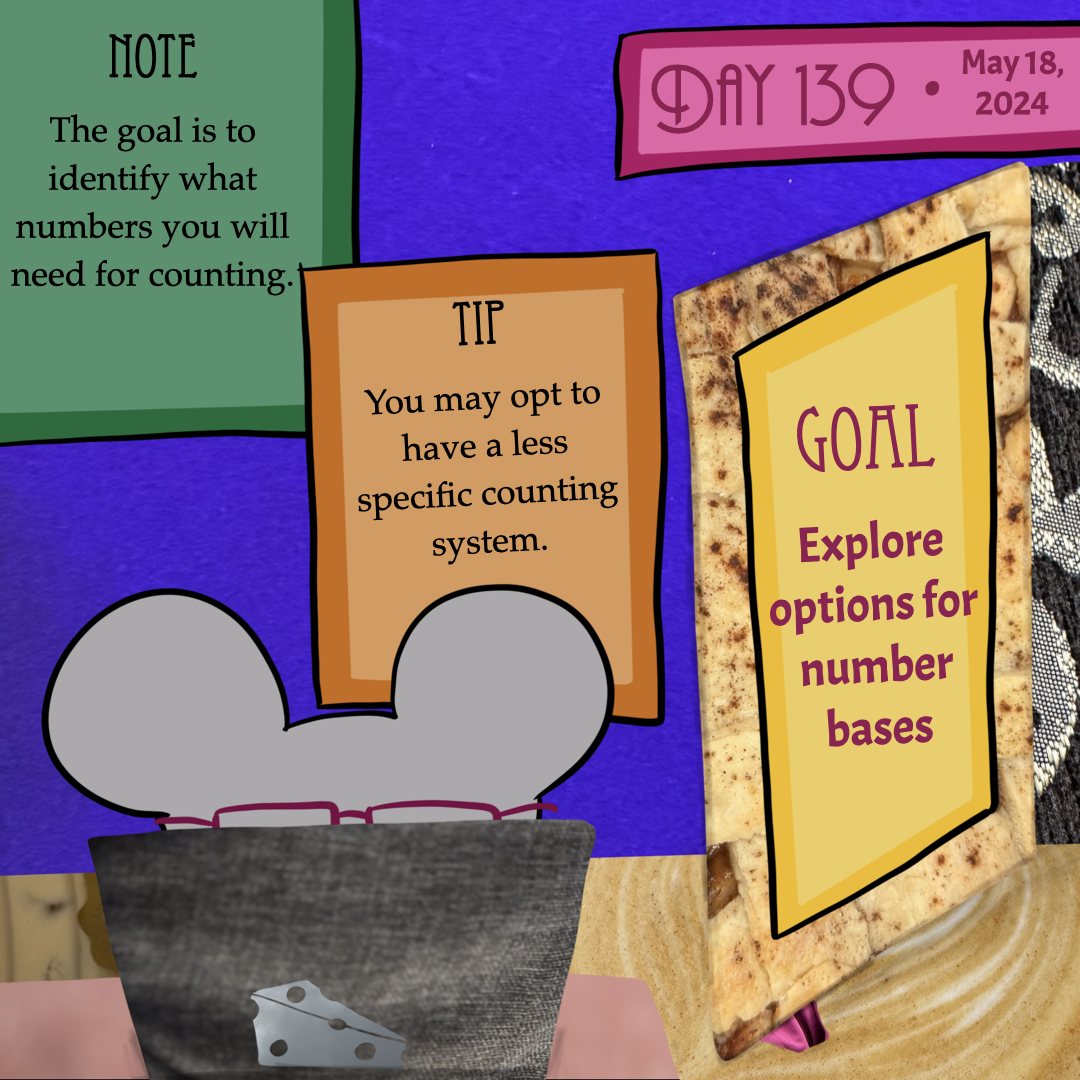
Day 139: May 18, 2024
Goal: Explore options for number bases Note: The goal is to identify what numbers you will need for counting. Tip: You may opt to have a less specific counting system. Work focus: Learn/Brainstorm/Try Today’s goal shifts the focus to numbers in your conlang. Spend today exploring options for number bases. Some options you might consider…
-
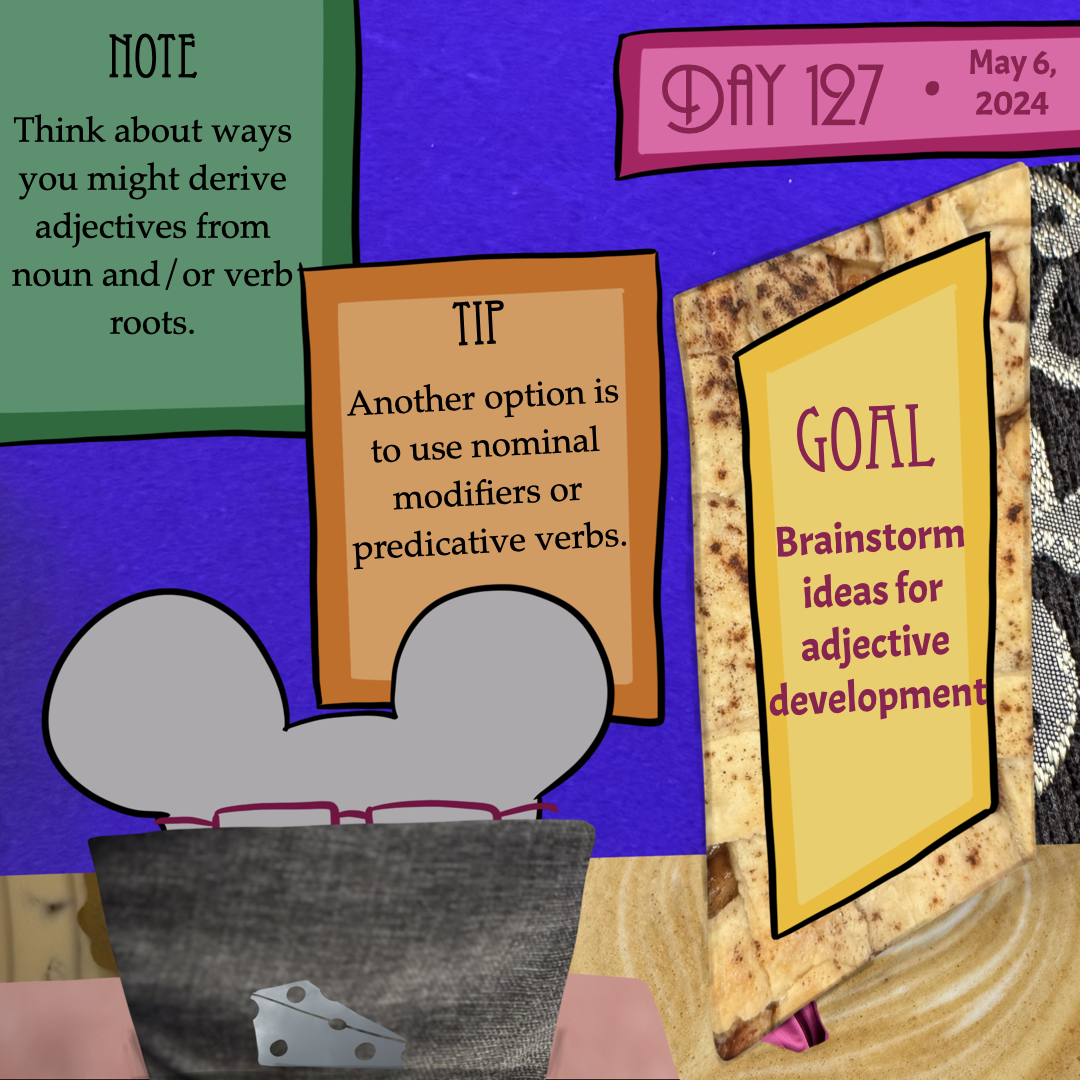
Day 127: May 6, 2024
Goal: Brainstorm ideas for adjective development Note: Think about ways you might derive adjectives from noun and/or verb roots. Tip: Another option is to use nominal modifiers or predicative verbs. Work focus: Learn/Brainstorm/Try Today’s goal is to brainstorm ideas for ways you might create new adjectives (beyond any basic adjectives you might have in your…
-
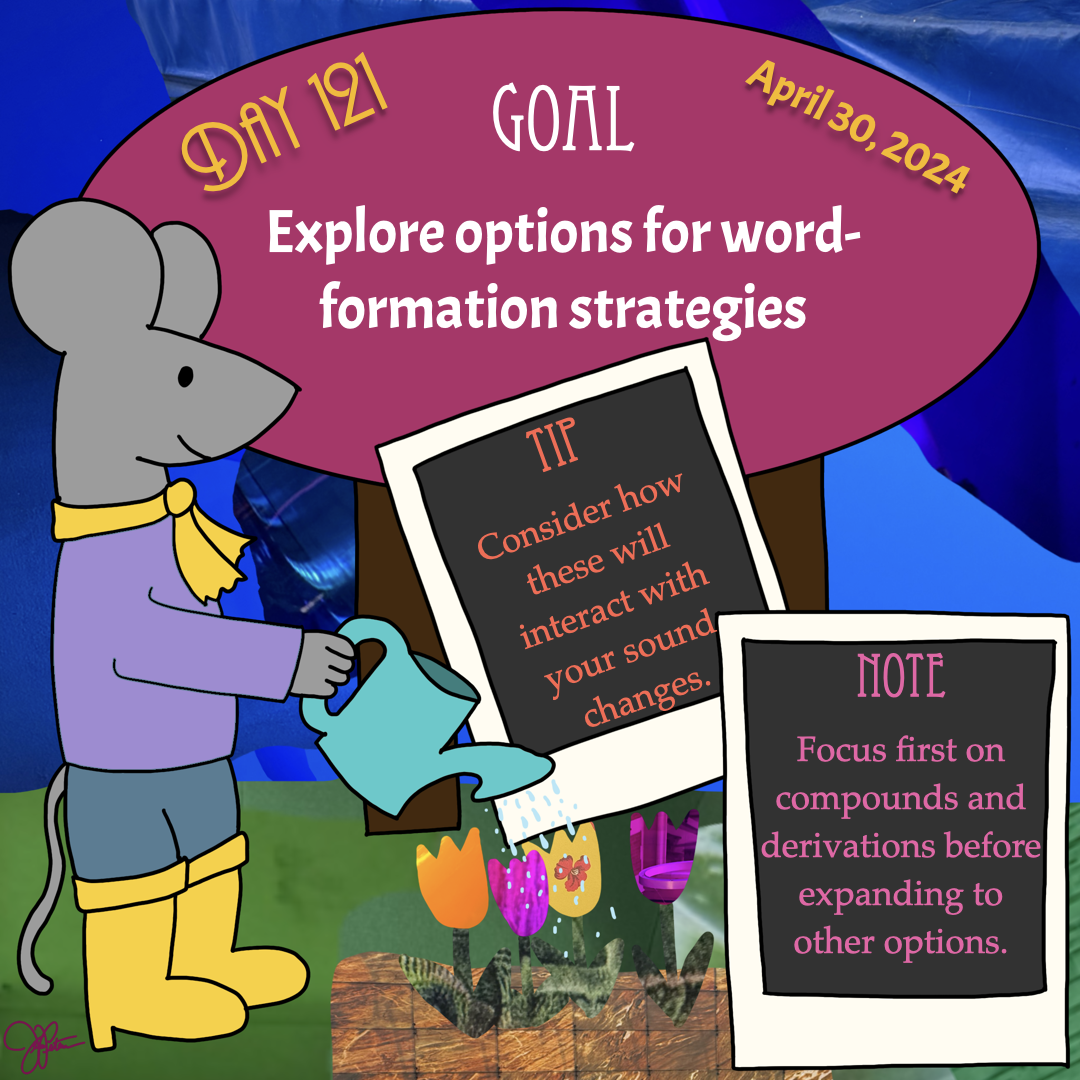
Day 121: April 30, 2024
Goal: Explore options for word-formation strategies Note: Focus first on compounds and derivations before expanding to other options. Tip: Consider how these will interact with your sound changes. Work focus: Learn/Brainstorm/Try Today shifts the focus to word-formation strategies, specifically focusing on compounding and derivation (though others are possible, these are two that show up in…
-
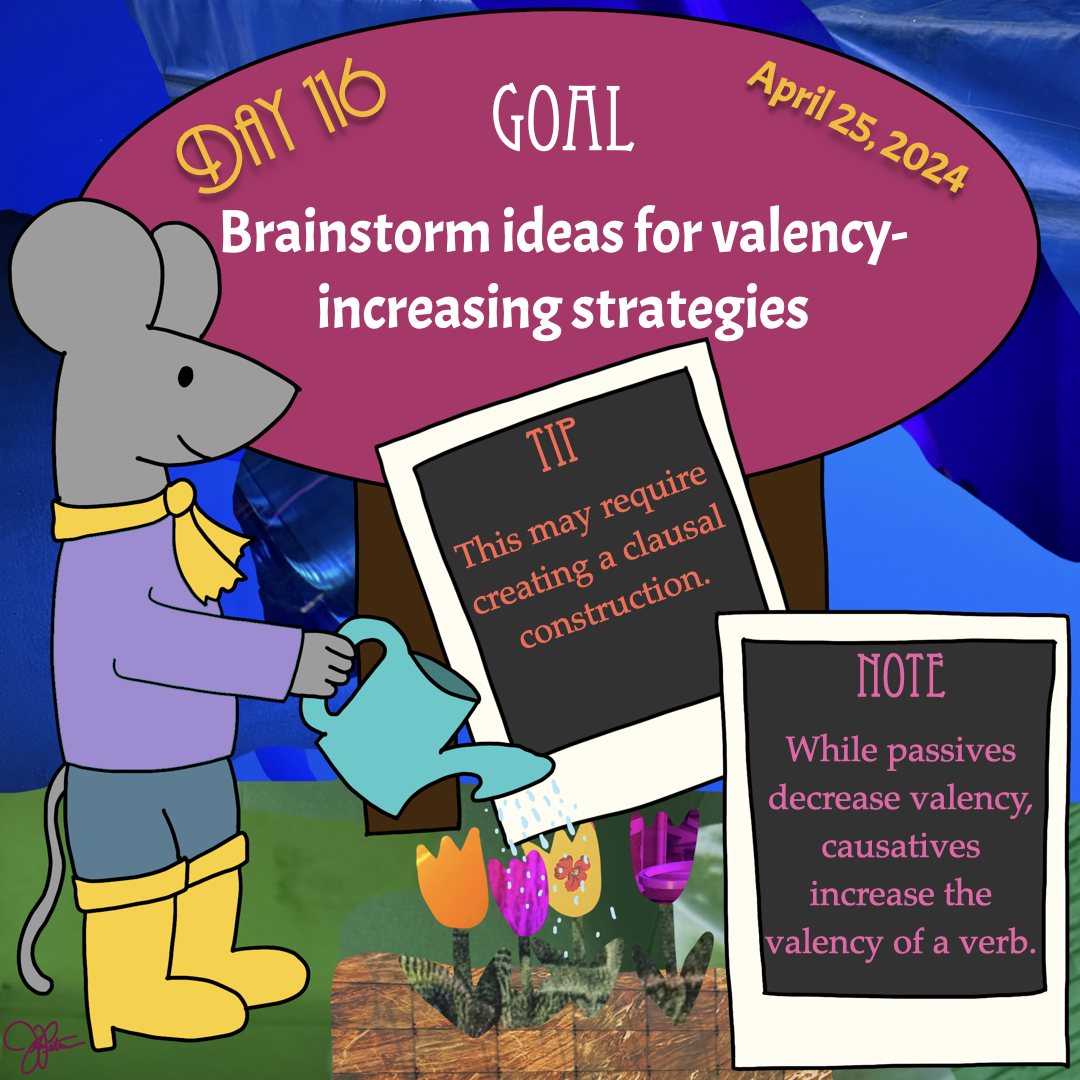
Day 116: April 25, 2024
Goal: Brainstorm ideas for valency-increasing strategies Note: While passives decrease valency, causatives increase the valency of a verb. Tip: This may require creating a clausal construction. Work focus: Learn/Brainstorm/Try Today’s goal is to start generating ideas for how you might handle valency-increasing strategies, such as the causative. A causative adds an argument to a verb’s…